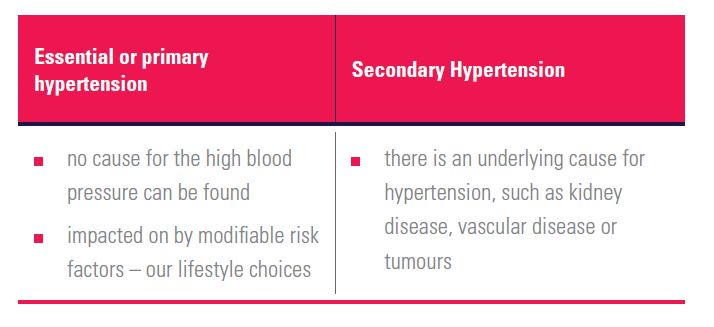Why is persistent, elevated blood pressure a 'silent killer'
Almost half of South Africans have this condition. It doesn't always show symptoms, yet it causes heart attacks, strokes and more.
Could you have high blood pressure and not know it? Are your lifestyle choices fuelling this disease? For Masechaba Molete, a diagnosis of hypertension at age 31, in 2015, came as an absolute shock. "I had no symptoms at all. My blood pressure was so high that I was at risk of a stroke", she says.
Quick and easy - a blood pressure test can save your life- World Hypertension Day is observed every year on 17 May
Go for a quick, non-invasive blood pressure check with a nurse at a pharmacy or clinic, or at your GP where a band around your upper arm that tightens slightly as it is pumped full of air will measure your blood pressure.
It'll give you two readings, for instance 120 over 80. The top number refers to 'systolic' pressure - the pressure in your arteries when your heart beats. The bottom number refers to your blood pressure when your heart rests, known as 'diastolic' pressure.
These readings are all it takes to understand your hypertension risk, and to protect your health.
Dr Deepak Patel, Clinical Specialist at Discovery Vitality, explains, "A healthy blood pressure, according to the American Heart Association, is below 120/80 mm Hg. When your blood pressure is greater than 130/80 mm Hg on more than two different occasions, it is likely that you have a condition called 'hypertension' or persistently high blood pressure. Catch it early and you can manage and reverse it with the right lifestyle interventions, ensuring your quality of life and health for years to come.
Hypertension often occurs with other chronic lifestyle diseases such as high cholesterol, type 2 diabetes or obesity and it's important to assess every patient for these diseases as well. Moreover, it is important to look for complications associated with hypertension such as kidney, eye or heart disease. Blood tests, urine tests, chest X-rays and an electrocardiogram are often done as part of a complete assessment.
What is hypertension and why is it dangerous?
Dr Patel explains: "Blood pressure refers to the force exerted by the blood against the walls of blood vessels. Blood pressure is determined both by the amount of blood your heart pumps and the amount of resistance to blood flow in your arteries. The more blood your heart pumps and the narrower your arteries, the higher your blood pressure."
And that's what hypertension is - a condition in which your blood vessels experience persistent, abnormally high pressure from the blood flowing through them. This causes damage to the vessels. Hypertension also causes heart disease and heart attacks as your heart must work harder to pump blood through your body. High blood pressure develops over years and even without symptoms, damage to blood vessels and the heart continues. "Unmanaged hypertension is very dangerous as it leads to aneurysms (weak spots and bulging in your blood vessels) and strokes, kidney failure, blindness, and cognitive impairment," adds Dr Patel.
What are the symptoms of hypertension?
Most patients with hypertension may not have any symptoms at all. To others, it may present as headaches, shortness of breath, dizziness, chest pain, heart palpitations and nose bleeds. All of these could be signs that your heart and blood vessels are under too much pressure.
Around the world, 10 million people die prematurely each year from hypertension and the World Health Organization (WHO) estimates that 1.56 billion adults will live with the condition by 2025.
Almost half of South Africans live with high blood pressure and it is estimated that nearly half of South Africans with hypertension have never done a check and are unaware that they have it.

Which lifestyle choices are putting you at risk of high blood pressure?
According to the Mayo Clinic, the biggest risk factors for hypertension are:
- The older you are, the higher the risk of high blood pressure.
- High blood pressure and serious complications, such as stroke, heart attack and kidney failure, is particularly common among people of African descent, often developing at an earlier age than in other races.
- The more you weigh, the more blood you need to supply oxygen and nutrients to your tissues. As the volume of blood circulated through your blood vessels increases, so does the pressure on your artery walls.
- High blood pressure tends to run in families, with a genetic predisposition putting certain people at higher risk.
- People who are inactive tend to have higher heart rates.
- High levels of stress can lead to a temporary increase in blood pressure.
- Smoking or chewing tobacco immediately raises your blood pressure temporarily, and the chemicals in tobacco can damage the lining of your artery walls. This can cause your arteries to narrow and increase your risk of heart disease. Second-hand smoke can also increase your heart disease risk.
- Heavy drinking can damage your heart - one drink a day for a woman and more than two drinks a day for men - may affect your blood pressure.
- Making unhealthy food choices, including eating too much salt. The average South African eats three or fewer portions of fruit and vegetables a day, instead of the recommended five, while we consume far too much sugar and salt.
- Certain chronic conditions, such as kidney disease, diabetes, and sleep apnoea, may also increase your risk of high blood pressure.
Change your lifestyle habits for healthier blood pressure!
Hypertension can be managed by adapting your lifestyle towards healthier habits.
